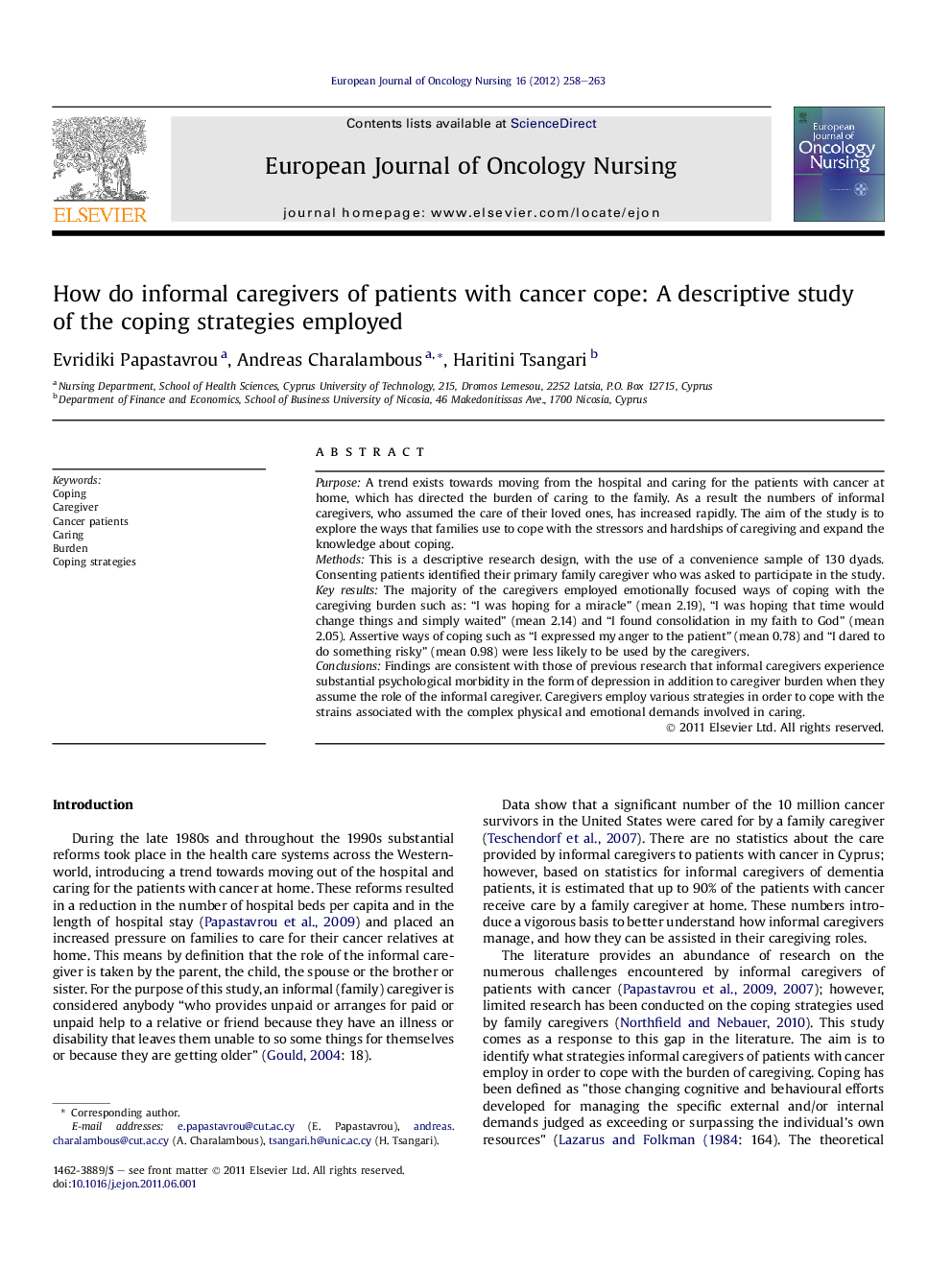| Article ID | Journal | Published Year | Pages | File Type |
|---|---|---|---|---|
| 2649672 | European Journal of Oncology Nursing | 2012 | 6 Pages |
PurposeA trend exists towards moving from the hospital and caring for the patients with cancer at home, which has directed the burden of caring to the family. As a result the numbers of informal caregivers, who assumed the care of their loved ones, has increased rapidly. The aim of the study is to explore the ways that families use to cope with the stressors and hardships of caregiving and expand the knowledge about coping.MethodsThis is a descriptive research design, with the use of a convenience sample of 130 dyads. Consenting patients identified their primary family caregiver who was asked to participate in the study.Key resultsThe majority of the caregivers employed emotionally focused ways of coping with the caregiving burden such as: “I was hoping for a miracle” (mean 2.19), “I was hoping that time would change things and simply waited” (mean 2.14) and “I found consolidation in my faith to God” (mean 2.05). Assertive ways of coping such as “I expressed my anger to the patient” (mean 0.78) and “I dared to do something risky” (mean 0.98) were less likely to be used by the caregivers.ConclusionsFindings are consistent with those of previous research that informal caregivers experience substantial psychological morbidity in the form of depression in addition to caregiver burden when they assume the role of the informal caregiver. Caregivers employ various strategies in order to cope with the strains associated with the complex physical and emotional demands involved in caring.
